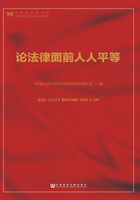That summer the heat had enveloped the whole of Shahkot in a murky yellow haze. The clutter of rooftops and washing lines that usually stretched all the way to the foothills at the horizon grew blurred and merged with the dust-filled sky.
'Problems have been located in the cumulus that have become overly heated,' read Mr Chawla from the newspaper. 'It is all a result of volcanic ash thrown up in the latest spurt of activity in Tierra del Fuego.'
And a little later he reported to whomever might be listening: 'The problem lies in the currents off the West African coastline and the unexplained molecular movement observed in the polar ice-caps.'
And: 'Iraq attempts to steal monsoon by deliberately creating low pressure over desert provinces and deflecting winds from India.'
And even: 'Hungarian musician offers to draw rain clouds from Europe to India via the music of his flute.'
'Why can't they think of serious solutions?' asked Mr Chawla. 'It is too hot to fool about with Hungarian musicians.'
Shahkot boasted some of the highest temperatures in the country and here there were dozens of monsooninducing proposals. Mr Chawla himself submitted a proposal to the forestry department for the cutting and growing of vegetation in elaborate patterns; the army proposed the scattering and driving of clouds by jet planes flying in a special geometric formation; the police a frog wedding to be performed by temple priests. Vermaji of the university invented a giant fan which he hoped would attract the southern monsoon clouds by creating a wind tunnel moving north towards the Himalayas, and he petitioned the Electricity Supply Board for enough power to test it. Amateur scientists from Mr Barnala of Tailor Gully to Miss Raina from the Sainik Farms area attended trade fairs where they displayed instruments that emitted magnetic rays and loud buzzing sounds. Everyone in town was worried. The mercury in the police station thermometer had exceeded the gradations Kapoor & Sons Happy Weather Company had seen fit to establish, leaping beyond memory and imagination, and outdoing the predictions of even Mr Chawla's mother, Ammaji, who liked to think she knew exactly what the future would bring.
It was a summer that sent the dizzy pulse of fever into the sky, in which even rules and laws that usually stood straight and purposeful grew limp, like plants exposed to the afternoon sun, and weak. The heat softened and spread the roads into sticky pools of pitch and melted the grease in the Brigadier's moustache so that it drooped and uncurled, casting shadows on his fine, crisp presence. It burned the Malhotras' daughter far too dark for a decent marriage and caused the water, if it came at all, to spurt, scalding, from the taps. The bees flew drunk on nectar that had turned alcoholic; the policemen slept all day in the banana grove; the local judge bribed an immigration official and left to join his brother in Copenhagen. Foreigners in their tour buses turned and went home, while Shahkotians argued for spots directly below their ceiling fans, leaving only for minutes if absolutely necessary and then hurrying back. In the marketplace, they raided the shops for palm leaf fans and bought grey blocks of ice that smoked like small fires. They rested their heads against the coolness of melons before cutting into them, held glasses against cheeks and foreheads between sips, fanned themselves at the stove with bunches of spinach before letting go reluctantly, for the sake of the evening meal.
The weeks passed, but the monsoon did not arrive. And by the time it was September, they had given up hope.
It was this year that Sampath Chawla was born to his mother, Kulfi. She was twenty-one years old, newly married to Mr Chawla, and pregnant. By late September the heat and lack of rain had combined to produce terrible conditions of drought. She grew bigger as it got worse. It got to be so bad that famine-relief camps were set up by the Red Cross to the west of Shahkot. The supply planes flew right over the bazaar and Shahkotians, watching with their heads tilted back, wondered why they didn't stop for them as well, for surely they were suffering quite enough to warrant the same attention and care being so assiduously delivered elsewhere. The ration shop was distributing rice and lentils in smaller and smaller portions all the time. There was no fruit to be found anywhere and hardly any vegetables. Prices had risen so high, nobody would buy the scraggy chickens sitting in cages outside the meat shop. Finally the poor butcher had to eat them himself, and after the last one, he was forced to turn vegetarian like the rest of the town.
Kulfi, in these months, was so enormously large, she seemed to be claiming all the earth's energy for herself, sapping it dry, leaving it withered, shrivelled and yellow. People stopped short in amazement as she walked down the street. How big she was! They forgot their dealings in the almost empty marketplace. They teetered on their bicycles as they looked around for just another sight of that stomach extending improbably before her like a huge growth upon a slender tree. Her eyes were so dark, so sooty and vehement, though, these people who turned their heads to stare turned quickly away again, ill at ease for some reason and unsettled. Not noticing them, she passed by as if they weren't there at all. On her face, about her mouth and in the set of her chin was an expression intent and determined but yet far away and distant, as if all her thoughts were concentrated upon a point invisible to everybody but herself. She walked through Shahkot like this, as distracted as this, as strange as this.
'What do you expect?' asked Ammaji, her mother-in-law, making excuses when curious neighbours asked about Kulfi's state of mind. 'What do you expect from a woman with a baby in her belly like a little fish?'
But Kulfi was not thinking of the baby in her belly like a little fish. She was thinking of fish themselves. Of fish in many forms. Of fish big enough and good enough to feed the hunger that had overtaken her in the past months like a wave. She thought of fish curries and fish kebabs. Of pomfret, bekti, ruhi. Of shoals of whiskered shrimp. Of chewy mussels. She thought of food abundant in all its many incarnations. Of fenugreek and camel milk, yam and corn. Mangoes and coconuts and custard apples. Mushrooms sprouting like umbrellas in the monsoon season. Nuts, wrinkled in their shells, brown-skinned, milky-fleshed.
The house was small for her big desire. She walked from the tiny blue bedroom to the kitchen thick with the smell of kerosene, around the table and chairs, up and down the balcony, down the stairs past the rooms of neighbours who shook their heads over her, then around the jamun tree in the middle of the courtyard.
'Oh dear, what is going to become of this woman?' said Lakshmiji, the Raipurs, the Bengali teacher, and all of the others when they looked out of their windows, when they gossiped at the tea stall or sat in each other's houses eating peanuts together. 'There was always something odd about her,' they said. 'You could tell this from the minute she entered Shahkot.'
Meal after meal of just rice and lentils could not begin to satisfy the hunger that grew inside Kulfi; she bribed the vegetable sellers and the fruit sellers and the butcher with squares of silk, with embroidery, a satin petticoat, an earring set in gold, a silver nutcracker, bits of her dowry that had not yet been pawned. She bribed them until they had nothing left to give her anyway. By then, her hunger was so fierce, it was like a big, prowling animal. In her mind, aubergines grew large and purple and crisp, and then, in a pan, turned tender and melting. Ladyfingers were flavoured with tamarind and coriander. Chicken was stewed with cloves and cardamom. She thought of chopping and bubbling, of frying, slicing, stirring, grating.
'What on earth is she doing?' shouted Mr Chawla as he watched his wife disappear down the road to the marketplace again and again, as he surveyed the emptying cupboards in the house, the missing items, the gaps on the shelves. 'What have you married me to, Amma?' he demanded ferociously of his mother, who looked worried as well. However, since she was responsible for the marriage, she put her worry as far from herself as possible, clucked her tongue and said soothingly: 'She is at a very delicate stage. Wait a little and maybe she will come out of it.'
'Come out of it.' He snorted. 'She is not going to come out of it. And if the baby takes after her, we are really in for trouble.'
Oddness, like aches and pains, fits of tears and lethargy, always made him uneasy and he had a fear of these uncontrollable, messy puddles of life, the sticky humanness of things. He intended to keep his own involvement with such matters to the minimum, making instead firm progress in the direction of cleanliness and order. He went to the public library to look for books about babies and waited in line outside the Mission School to enrol the baby well in advance, for he knew how long the waiting lists were. He collected vitamins and tonics from the government clinic.
'You must take care to boil your drinking water for twenty minutes.' He followed Kulfi about the house reading aloud from his library book as she ignored him. He held one of his fingers up in the air. Despite his young age and slight build, he felt a powerful claim to authority. 'You must sit down and rest after any exercise,' he advised. And: 'You must stand up and exercise regularly and diligently'And: 'Don't eat raw fruit any more.' And: 'Don't sing songs and tire yourself out. Don't drink tea on an empty stomach. Keep yourself extra clean. Wash your hair, take a nap, put your legs up in the air and do bicycling exercises.' He wiped the sweat from his forehead with a handkerchief and continued following his wife, even though it was clear she had no interest whatsoever in what he was saying.
Ammaji had her own ideas of how a woman's pregnancy should be managed. She fussed with pillows and herbs, with hairbrushes and bottles of strong-scented oil for massages. 'Sing songs to improve the baby's mood,' she advised. 'Go to the temple. Say the right prayers. Make sure the baby is healthy. Make sure the planetary configurations are good. Make sure you have no lice. Make sure you smell nice, and the baby will smell nice too.'
Everywhere there was the feeling of breath being drawn in and held, as if it wouldn't be let free again until the baby was born and it could be released–released happy and full of relief if the baby was a boy; released full of disappointment and resentment if it wasn't.
In Kulfi's stomach Sampath was at first quiet, as if he weren't there at all. Then, as if excited, he grew bolder and more full of life, until he kicked and turned and even leapt. Kulfi paced up and down, up and down, with her hands upon her belly and thought she might soon begin to scream, and that, whether she wanted to or not, she might continue to scream all the way up until the birth and maybe even after. Her stomach grew larger, her dreams of eating more extravagant. The house seemed to shrink. All about her the summer stretched white-hot into an infinite distance. Finally, in desperation for another landscape, she found a box of old crayons in the back of a cupboard and, with a feeling bordering on hysteria, she began to draw on the dirty, stained walls of the house. She drew around the pictures of babies Ammaji had put up. Babies eating porridge, posing with dolls and fluffy yellow chicks, attempting somersaults. Babies fat and fair and male that Ammaji hoped would somehow, through some mysterious osmotic process, influence the formation of her grandchild. Kulfi drew around these pictures and sometimes over them. She drew a pond, dark but leaping with colourful fish. A field of bright pineapples and pale, dangling snake-gourd. Big lumbering jackfruit in a jackfruit tree and a scratching bunch of chickens. As her husband and mother-in-law retreated in horror, not daring to upset her or the baby still inside her, she drew a parade of cooks beheading goats. Others running to a marketplace overflowing with things to bargain over. Some standing over steaming pots with ladles or pounding whole spices on a grinding stone. She drew creepers and vines that climbed in at the window and spilled a wilderness of leaves upon the walls. She began to draw fruit she did not know; spices yet to be discovered in hidden pods or sequestered in the heart of unknown flowers. She drew dishes that she had never eaten: a black buck suspended over a fire with a row of ingredients destined to transform it into magnificence; a peacock cavorting among cloves of garlic; a boar entangled in a jungle of papaya trees. Onions grew large beneath her feet; creepers burst from the floorboards; fish swam beneath the doors.
In the next room was the sound of Mr Chawla pacing up and down. 'What have we got ourselves into?' The sound of Ammaji whispering: 'Just wait a little, beta, wait and see.' Outside, in the barren sky, the drone of the Red Cross planes.
When there was almost no space left to draw on any more, when the walls, floor and ceiling were full, packed tight to the point of bursting, Sampath was born. And he was born in such remarkable circumstances, they were remembered for ever afterwards by the people of Shahkot.
One day, as Kulfi was at the bedroom window looking at the street, prepared to sit through another seemingly endless stretch of time until Ammaji finally cooked and served her dinner, all of a sudden a shadow fell across the sun and magically, as quickly as a winter's day tumbles into smoky evening and then night, the white-lit afternoon deepened into the colour of old parchment as the sky darkened. Curtains billowed white out of every window. Bits of newspaper and old plastic bags turned cartwheels in the indigo streets. The air thinned and stirred in a breeze that brought goose bumps out upon her arms. 'Look!' Kulfi shouted. 'Here comes the rain!'
She could hear the sound of cheering from the bazaar. And she watched the children in the streets leap like frogs, unable to keep still in their excitement. 'It's getting cold,' they shouted, and pretended to shake. 'It's going to rain.' They wrestled and tussled with each other in an exuberance of spirit, while the grown-ups hurried, in this shifting, shadowed light, to get to the market and back, to bring in washing, to carry in string cots. They raised their hands in greeting to each other: 'At last! The monsoon!' Who knew whether it came because of the giant fan, the wedding of frogs, the Pied Piper, because of mercurial powers or magician's marvels? And in the end, who cared? The rain had come to Shahkot. The monsoon was in town. Kulfi watched with unbelieving elation as the approaching smell of rain spiked the air like a flower, as the clouds shifted in from the east, reached the trees at the town's edge and moved in.
In the Chawla household, Mr Chawla bustled about with plastic sheeting, while Ammaji placed buckets outside to catch the rainwater and brought out candles and kerosene lanterns in preparation for the inevitable breakdown of electricity. They paused, though, to test the growing strength of the wind against their cheeks; looked up to check the progress of the clouds. When they were finally prepared for the downpour, they watched from the windows like Kulfi and the rest of Shahkot's residents, leaning from balconies and verandas, from beneath the flaps of scooter rickshaws; the entire town, with anxious, upturned eyes, until an especially strong gust sent the leaves flying like birds before gunshot and brought the first drops of water to sound loud against the parched earth.
Kulfi watched the rain. It came down fast and then faster yet. It filled up every bit of sky. It was like no other sound on earth and nothing that was ever suggested by the thin trickles from Shahkot taps. It came down black with dust from the sky and dirt on the trees, and then clear. But always louder. She stretched out her hands to feel the weight of the drops on her flat palms and then put her face out too, holding it, luminous, pale, in this town enclosed within the dark heart of the monsoon.
As she did so, she felt Sampath kick inside her stomach. Her heart jumped in rhythm. He kicked harder and harder. The jamun tree in the courtyard thrashed and creaked. The rain streamed down Kulfi's hair and washed over her face. Her husband shouted: 'Get away from the open window.' She paid no attention. He wrapped her in a square of plastic, but she shrugged it off. The rain descended in great sweeping sheets.
The neighbours withdrew in quick, sharp movements, slammed their windows, barred their doors, but Kulfi stretched out farther still, farther and farther until the rain took up all the space inside her head. It seized her brain, massaged and incorporated her into the watery sounds, until she felt that she herself might turn to storm and disappear in this blowing, this growling, this lightning flutter quick as a moth's wing. If she would only let go of the metal window frame, she could take all those tedious days of summer and crash them to the ground, transform them into water and wind and pounding.
She felt her muscles contract as a clap of thunder echoed about her. Again, the thunder roared. Kulfi, soaking wet, opened her mouth wide and roared back. Below her, the ground had disappeared. Ponds formed, joined to make lakes and ran down streets to make rivers. Rivers took the place of roads.
A mere two hours later, Mr Chawla and Ammaji running back and forth with cloths and hot water, the storm still raging, rain pouring through windows that would not stay closed and flooding in beneath the doors, Sampath was born. As his face, with a brown birthmark upon one cheek, appeared to the cheers of his family, there was a roaring overhead that almost split their eardrums, followed by a vast crash in the street outside.
'What was that?' said Mr Chawla nervously, as the ground shuddered. Could it be that his son's birth had coincided with the end of the world? Leaving Kulfi and the new baby, he and Ammaji ran to the window to investigate, and discovered that far from being the end of things it was more like the beginning.
Caught in their old jamun tree, they saw a crate of Red Cross supplies that had been dropped by a Swedish relief plane befuddled by the storm in a move that must surely have been planned by the gods. The departing plane rose high into the sky and vanished among the swirling clouds, unmoved apparently by the townspeople jumping and waving down below as they ran out despite the downpour to greet this unexpected largesse. Draped in the foliage of the ruined jamun, they discovered containers full of sugar and tea, of rehydration mixes, dried milk powder, raisins and digestive biscuits. There were unidentifiable powders in packages covered with pictures of smiling foreign women. There were nuts, sweets and baby-food tins galore.
Climbing high into the tree, the street urchins tossed down what they found lodged in the broken branches. Mr Chawla ran back and forth like a silly chicken, filling a shopping bag with supplies, while Ammaji alerted neighbours to the birth by shouting out of the window near Kulfi's bedside. Soon the house was full of well-wishers, chattering excitedly, not knowing whether to talk of the baby or the rain or the food. 'Wonderful,' they kept exclaiming, water dripping from their clothes to form pools about their feet. 'What a beautiful baby…and can you believe the monsoon? Oh and the food!…What a baby!'
Only Kulfi was quiet. She looked at the tiny creature in her hands, a creature that looked as if he had come from another planet altogether, or had been discovered in the woods, like something alien and strange. The baby's eyes were closed and his fingers were tightly curled. His face was red and his skull pointed. She looked at his strangeness and felt a sense of peace and comfort descend upon her. Soon the storm would end and the world would grow silent and fragrant, the air weathered soft as the hour of sleep. Soon the winged ants would be flying and lizards would grow fat on dozens of multiplying insects. The water would turn muddy and soft. Doors would swell and it would be impossible to close them once opened, or to open them once closed. Fungus and mould would sprout green and voluptuous and armies of mushrooms would gather in the cupboard under the sink.
Attempting to include Kulfi in their high spirits, the neighbours assured her that her son was destined for greatness, that the world, large and mysterious beyond Shahkot, had taken notice of him. 'Look! Even people in Sweden have remembered to send a birthday present.' And: 'Let's name him Sampath,' they said. 'Good fortune.' For though he might not be very plump or very fair, he was triumphantly and indisputably male.
In great good humour, chewing on famine relief, they celebrated by the light of a roomful of candles, for the electricity had, of course, gone.















